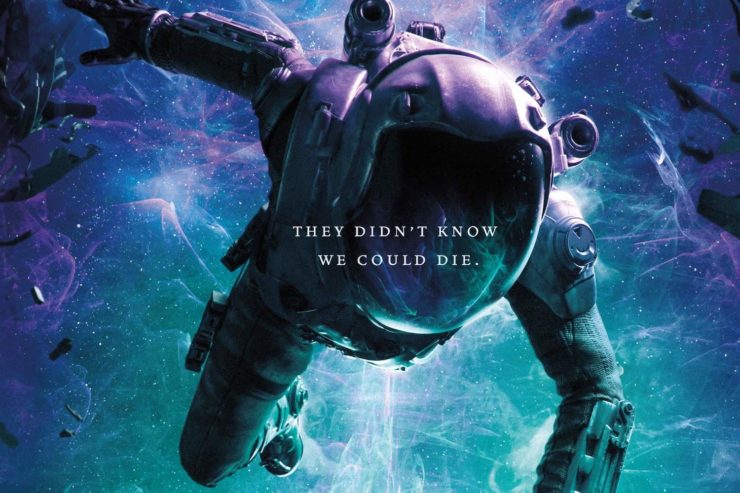In my mid-twenties, I visited Ostia Antica, a massive archaeological site just outside of Rome. As different as the Romans were from the culture and the world I grew up in, the city itself felt remarkably familiar: a cemetery, a main street, a theater. Just around the corner from the churches and temples was a little sports bar with mosaics of favorite wrestlers on the floor. You can just imagine a rowdy crowd leaving weekend worship and heading to the local bar for wings and a cold one (or, in the Roman case, lamb with garum and an amphora of wine). It was a reminder that, as humans, more ties us together than keeps us apart.
We often need these reminders. Humanity is so fond of our little boxes, of our us versus them, of our species and genres and cliques and races. In the process of understanding ourselves and our world, we break down the great truths into smaller truths, and then everything gets registered, ordered, stamped, implied, inferred and declared until we’re arguing over the classification of single grains of sand.
I could see a “sports bar” in the bones of that Ostian building because, in the end, underneath our thick white skulls are the same structures through which we understand our world: music, dance, storytelling, religion, politics. In all of the best moments of our species’ existence, we assume that real truth of our common humanity.
But what if Ostia had been an alien city? Can you really assume anything when it comes to an alien race? How much harder would you have to work, and how much more science might you have to do? Pay attention, eager first-contacter, and put aside all of your human classifications and assumptions, or you’re going to find yourself in trouble—just like some of the characters in these books.
The Sparrow by Mary Doria Russell
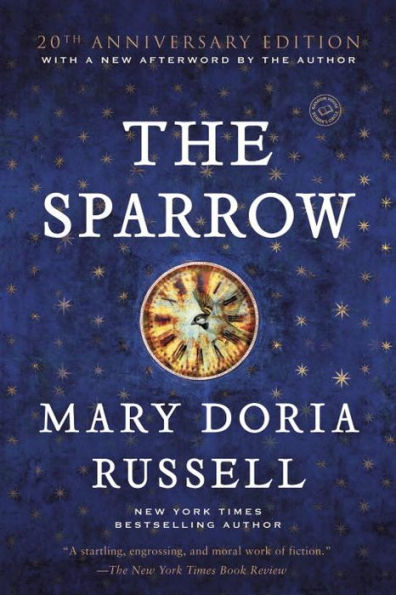
This book demolished me so hard during the fall of 2001 that I turned around and changed my entire senior bachelor’s thesis overnight so I could spend the next semester puzzling out the theological implications of the events it chronicles. Father Emilio Sandoz, a Catholic Jesuit priest, is a member of the first mission to the planet Rakhat, where two sentient races, the Runa and the Jana’ata, live entirely separate existences. The Jesuits—being Jesuits—discovered Rakhat through broadcasts of incredible music that reached Earth’s radio towers, and they set off, eager to make contact with a species that could also know God—because, with music like that, how could they not?
Assumption #1. What Sandoz is missing about the situation dawns on readers at different points during the book—but by the time you understand, as Sandoz understands, it’s always too late.
The problem is that Sandoz and the others in his crew are not always willing to acknowledge that this alien race is, well, alien, or to consider themselves as the aliens on Rakhat. This is a novel about the stories colonizing cultures tell themselves when they go to other lands—stories of moral superiority, of a grounding in religious and cultural certainty, of not needing to listen to the words of the indigenous cultures or deciding to see them through a European light. It’s also a story about experiencing and recovering from severe trauma while in the limelight, a prescient story in our Instagram-soaked universe.
(There’s a sequel, too, but I haven’t read it yet. I bought it in 2003. It’s sitting on my bookcase and I haven’t read it yet. I’m assuming my human heart can’t take it.)
Noumenon Infinity by Marina Lostetter
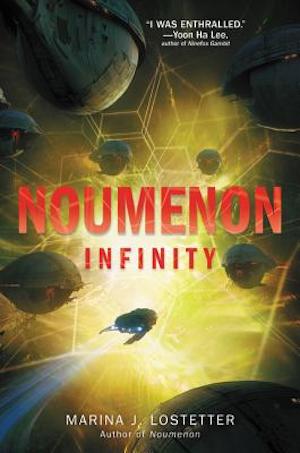
In this delightful sequel, Convoy Seven—a scientific mission from Earth, dispatched centuries earlier and staffed primarily by clones of the original crew—has set off once more to LQ Pyx to study the ancient, unfinished alien structure centered around it—is it a Dyson sphere? A weapon? (Assumption #2!)
This sequel introduces Convoy Twelve, the “lost” mission, which had disappeared while studying dimensional anomalies. They come out the other side of a terrible accident to find themselves face-to-face with a megastructure-creating race of alien beings that have no interest whatsoever in speaking with them. (Assumption #3—of course!)
It’s a common trope in science fiction that alien contact is going to be absolutely consequential when it happens—through wars, or world peace, or a rapid increase in science, for example, so it’s strange that Twelve meets up with the aliens and the aliens are actually hostile to talking with them. But Lostetter’s series is about a larger perspective—it plays out against the scale of the universe itself, over centuries, with entire civilizations as characters, not just individuals. Human beings aren’t very good large-scale thinkers, yet that’s exactly what Lostetter is asking readers to do.
The Convoy Seven side of the narrative continues to be anchored by I.C.C., an AI through which we see how the passing of time affects the mission even as characters are born and die and are born again. Sticking with Convoy Twelve reads as the standard experience of a single crew over days or months. When the timelines merge, nothing about this book is standard. Lostetter wants you to know that assumptions, when placed against a backdrop of the universe and of alien consciousnesses—mean nothing, and can get you in far more trouble than an open mind might. What does it mean to be human? Do you think you really know? Or do you just assume?
Semiosis by Sue Burke
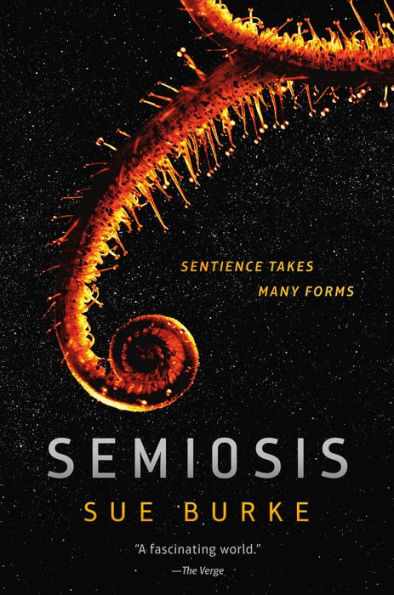
How many ways are there to get wrecked by an alien planet? A bunch of unprepared colonists are about to find out.
The colonists on the planet Pax are pacifists fleeing a war back home, but they don’t find peace in their new settlement—in fact, they’re caught up in a new war, this time between alien life that sides more with “flora” than “fauna.” Pax is hostile to their very DNA; the plants can and will kill them, they can’t grow food, and the soil can’t support the ecosystems that make human life possible.
So they take sides—and, this time, it’s the sentient plant that makes all the assumptions.
No, you didn’t read that wrong. Semiosis, which was inspired by Burke’s own research into the behavior of Earthside flora, is narrated in part by a sentient plant that has had to twice figure out how to incorporate alien life into its own ecosystem, and is attempting to domesticate the human colonists to serve its own needs, as it does not quite understand the humans’ sentience or individuality.
Some writers may take this thought and head off to make a horror movie, but Burke is more interested in communication and building a nascent utopia, and how the two very alien ways of life may learn to coexist as equals. The plant weaves its way into humanity and how human life adapts to it in order to learn how they may eventually be able to learn to coexist. If they can’t, the humans may end up like the lost Glassmakers, the species who came before.
Like Noumenon, this story is told over generations, an acknowledgement that assumptions can kill, and that any true understanding between different aliens occupying entirely different evolutionary niches may actually not be a thing that can occur in one mortal lifetime.
Leviathan Wakes by James S.A. Corey
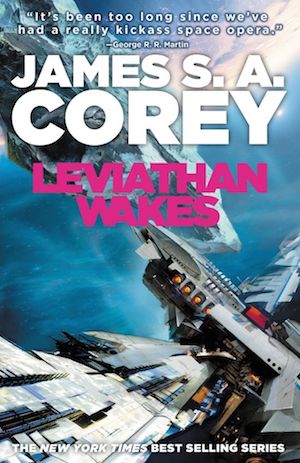
Corporations in science fiction aren’t always evil—but they’re usually out to ruin everyone’s day by assuming this, that, and the other thing, and that’s certainly the case with Leviathan Wakes and its sequels. This time, the Mao-Kwikowski Corporation has uncovered an alien substance known as the protomolecule, and they’re attempting to use it to do what corporations generally want to do: increase their profits. The crew of the Rocinante, captained by idealist James Holden, stumbles upon the conspiracy, which eventually leads to a domino-fall of lies, cover-ups, and all-out war.
Corey’s corporates cause so much trouble because they assume they can control the alien substance—but, throughout, the protomolecule is dispassionate and efficient and largely uncontrollable. The result of human refusal to even try to understand it is death by blindness, death by spaghettification, death by being turned into a blue glowy murder monster or smashed into a thin red goo—you get the picture. Assumptions lead to every single death.
Holden is part of the minority that realize that a healthy scientific respect of the alien devices is the only advantage the humans have in their dealings with the protomolecule. Leviathan Wakes is what happens when you can’t talk to the aliens at all, because they’ve sauntered off and left their toys behind for humans with their many and manifold conflicts to puzzle out and assume (#4? #5? #2827372?) the aliens’ original intentions.
That ends about as well as you’d imagine.
Binti by Nnedi Okorafor
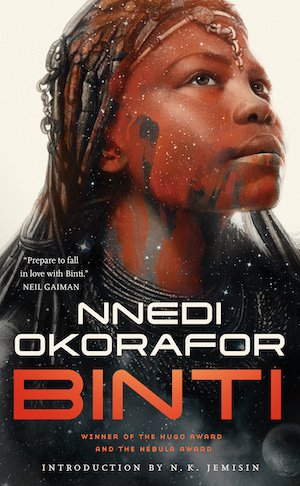
And then there are the times when assuming the aliens might want what you want actually turns out to work. (For everyone else, that is.)
Math genius Binti is the first of the Nigerian Himba nation to be accepted to attend college at prestigious, planet-sized Oozma University. On the way there, her ship is attacked by the alien Medusae, and out of hundreds of people, Binti becomes the only survivor, and she proposes to make peace between the two sides. At the heart of the tentacular Medusae is a serious, bleeding hurt, something that came from a misunderstanding of human origin. But, to do this, the aliens transform Binti into something closer to them.
Binti is then faced with bearing the brunt of other people’s assumptions. When you’re the alien wherever you go, when you’ve undergone mental and physical trauma that takes you away from everything you knew and every human truth you thought was real, how do you communicate with the alien in yourself? How do you reconnect with a world that no longer recognizes you?
Binti’s transformation pushes her to become a peacemaker, showing her world that although difference is a given and misunderstanding assumed, staying in that place of unlike me doesn’t have to be. That like me is still more true than not, no matter who you are.
It just might take a little work to get there.
Buy the Book
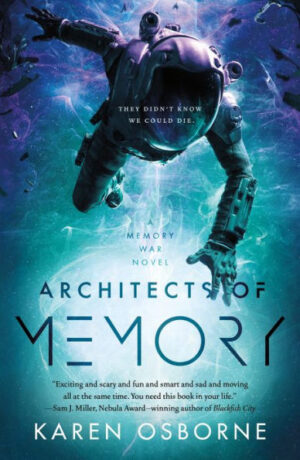

Architects of Memory
Karen Osborne is a writer, visual storyteller and violinist. Her short fiction appears in Uncanny, Fireside, Escape Pod, Robot Dinosaurs, and Beneath Ceaseless Skies. She is a member of the DC/MD-based Homespun Ceilidh Band, emcees the Charm City Spec reading series, and once won a major event filmmaking award for taping a Klingon wedding. Her debut novel, Architects of Memory, is available from Tor Books.










